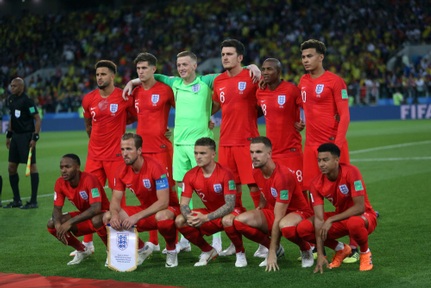Watching England at the World Cup is good for your mental health
Those who watched the recent England penalty shoot out against Colombia would not agree with a senior doctor, who says watching football is good for your mental wellbeing.

However the leading dementia expert for the NHS has said that for older people in particular, there are clear benefits to watching football, especially if they are classic football matches from the past such as England’s 1966 world cup victory.
NHS England clinical director for dementia, Alistair Burns, said: “Although fans may not feel it this week, football can be good for your nerves. The beautiful game really can help your mind and body.
“As well as being great physical exercise, there is a positive link between watching classic football matches and keeping the mind active. For people in old age and dealing with dementia, rewatching matches can rekindle past memories, connect people with their past and keep the brain active.”
He added: “Johann Cruyff was right when he said that football is a game you play with your mind, and sport of any kind has a unique power to keep the brain going.”
NHS England’s director for dementia believes the power of sport can stimulate emotion which can be revived many years after the event. Emotional memory can be more powerful than memory for personal events, so if people relive exciting or tense moments this can stimulate memories potentially strengthening brain activity.
Across the UK, 850,000 people are estimated to live with dementia, while mental ill health affects nearly eight million people aged over 55.
Tony Jameson-Allen, co-founder of Sporting Memories Foundation, the world's first charity dedicated to sports reminiscence and physical activities, said: “Be it Kenneth Wolstenholme's iconic commentary as Sir Geoff Hurst scored his hat trick, Nobby Stiles doing a jig of delight or Bobby Moore being hoisted onto the team's shoulders holding aloft the Jules Rimet Trophy, these great moments can bring back wonderful, positive memories, that can be used to unite generations to tackle three of the biggest challenges facing an ageing population; dementia, depression and loneliness.
"Sport unites communities and generations, it stirs the soul and can reawaken powerful emotions. Every week we witness the positive impact recalling golden moments of great sporting moments has on the physical and mental wellbeing our group members, many of whom live with dementia."
Sport has so many benefits, both physical and mental and as older people become less mobile, sport can be adapted to their fitness levels, such as walking football and chair zumba.
Caroline Abrahams, charity director at Age UK says watching England play at the World Cup will create a “positive atmosphere - we hope! – and a sense of us all being involved in something that’s bigger than ourselves. That’s a tonic for everyone, especially perhaps for older people whose opportunities to get out and engage with others are less frequent than they used to be, or than they’d ideally like.”
To improve access to better mental health care for older people, the NHS in England recently published with Age UK a toolkit for GPs to help spot the signs of mental ill health in the over-55s.
Latest News
 29-Jul-24
Dementia Bus gives carehome.co.uk staff insight into life with dementia
29-Jul-24
Dementia Bus gives carehome.co.uk staff insight into life with dementia
 27-Jul-23
UK's top home care agencies in 2023 revealed
27-Jul-23
UK's top home care agencies in 2023 revealed
 30-Nov-22
A quarter of older people keep their falls secret from family
30-Nov-22
A quarter of older people keep their falls secret from family
 29-Nov-22
'Covid-19 has not gone away' say terminally ill
29-Nov-22
'Covid-19 has not gone away' say terminally ill
 28-Nov-22
IT consultant who received poor care opens 'compassionate' home care business
28-Nov-22
IT consultant who received poor care opens 'compassionate' home care business